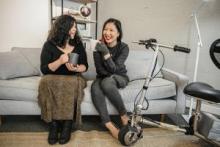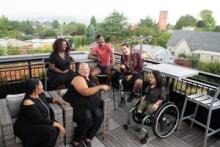Evidence
Anyone is welcome to share the barriers they experience with us in the Inclusion Services team. If you would like to access reasonable adjustments or support at Arden as a direct impact of a learning difference, mental health condition, disability, and/or long-term illness, please do get in touch and we can explore the options available to you.
To put some types of support or specific reasonable adjustments in place, we usually need to see medical evidence (for example a letter from your Doctor or Specialist; or a diagnostic assessment). If you already have evidence, please send these to inclusion@arden.ac.uk. Please put the word EVIDENCE in the subject heading when you send the evidence.
To access support through the DSA, you will need to provide evidence for them (This can be the same evidence you send to us at Arden) . We are happy to advise on whether your evidence is likely to be accepted or whether additional evidence may be required. Typically, the DSA will ask for evidence from this list:
Evidence accepted by the DSA:
For mental health conditions, disability, and/or long-term illness: signed form or letter from your GP or Specialist that details:
-
The condition/disability that you experience e.g. diabetes or anxiety
-
That this impacts your studies
-
That this is has lasted for a year or more or is likely to last a year (where this is not immediately clear)
For learning differences:
-
A diagnostic assessment that was undertaken by an Educational Psychologist or Specialist Assessor (This needs to meet specific standards)
For advice on whether your evidence is likely to be accepted, please do contact the Inclusion Services team.
You can still disclose or share a disability if you do not have access to any supporting evidence or are awaiting medical evidence or diagnostics. The Inclusion Services team will then be able to advise on access to support or reasonable adjustments that may be available to you.





